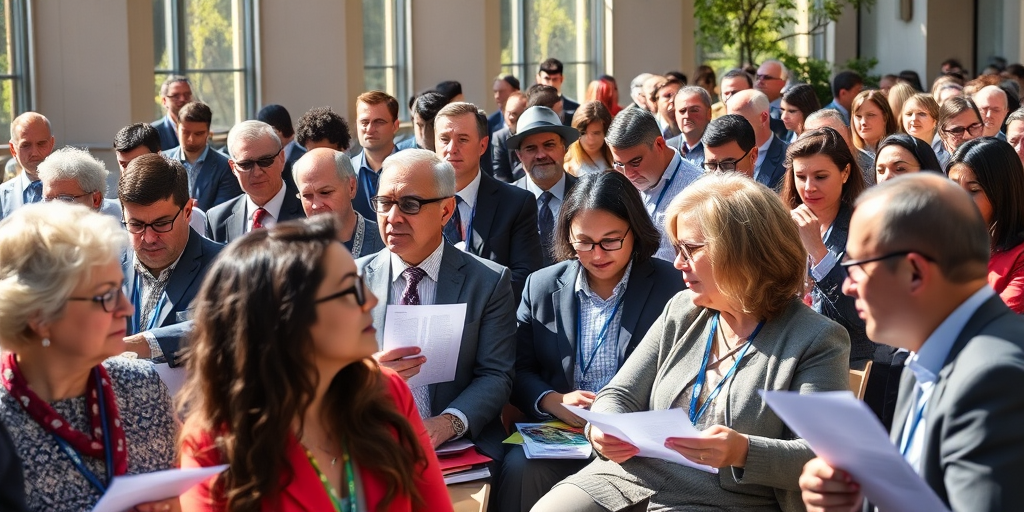Exploring Equity: Highlights from the Inaugural (Re)Production of Inequality in Evaluations Conference
**A New Era in Evaluating Fairness**
In a historical gathering that could pave the way for more equitable professional settings, the inaugural (Re)Production of Inequality in Evaluations Conference was hosted at Columbia Business School from May 14-15, 2025. Spearheaded by esteemed academics, including Tristan Botelho from Yale School of Management (SOM), the event brought together scholars from leading institutions to address disparities in professional evaluations. This event highlighted the intricate factors contributing to inequality and proposed new frameworks for achieving equity.
**Conference Highlights and Key Discussions**
Prominent sessions delved into the complexities surrounding recruitment practices, gender disparities in funding, and the underrepresentation of certain demographics in entrepreneurship. Researchers examined how historical biases in evaluation systems inadvertently perpetuate inequality, urging a shift toward methodologies that promote inclusivity and fairness.
One notable session, led by Santiago Campero and Shiobhan O’Mahoney, explored if employers modify their recruitment strategies based on previous interview outcomes. This session sparked lively discussions among attendees from institutions like Harvard Business School, MIT, and NYU. Another significant panel addressed how gender influences investor assessments in innovation startups, encouraging a reimagining of evaluation criteria to bridge gaps faced by female entrepreneurs.
**Community Impact: A Catalyst for Change**
The themes discussed at the conference resonate deeply with the broader entrepreneurial community, including residents and aspiring business leaders across the United States. The insights gained here not only contribute to academic discourse but also offer practical strategies for enterprises aiming to foster diverse and inclusive workplaces. By championing such dialogues, the conference impacts local communities by advocating for fairer practices that benefit all residents.
Local entrepreneur and Yale alumna Sarah Martinez remarked, “Conferences like these are vital. They bring to light obstacles that many entrepreneurs face daily due to biases ingrained in traditional evaluation systems. Seeing academia taking steps to address these means progress for every small business owner striving to succeed on merit.”
**Connections to Ongoing Issues and Yale’s Initiatives**
Yale SOM’s involvement in the conference reflects its commitment to confronting systemic inequities—a priority mirrored in its broader initiatives. Yale actively engages in entrepreneurial programs that spotlight underrepresented groups, and its news platform features related initiatives like Startup Yale, underscoring the institution’s dedication to fostering diverse business environments. These efforts complement past local events aimed at addressing inequities and promoting inclusive entrepreneurship.
**Potential Implications for the Future**
The conference represents a significant stride towards re-evaluating longstanding practices. By prioritizing fairness and diversity in evaluations, future professional landscapes could experience profound transformations—encouraging innovation while dismantling barriers for marginalized communities. The insights from this event not only influence academia but also provide guiding principles for community leaders, policymakers, and organizations dedicated to equity.
Dr. Emily Chen, a sociologist specializing in organizational behavior, states, “The willingness to scrutinize and amend existing frameworks is paramount for progress. The potential for this conference to incite industry-wide change is promising, with implications reaching beyond academia into every sector reliant on evaluative processes.”
**Balanced Perspectives and Future Directions**
While the conference yielded optimism about reshaping evaluation systems, challenges remain. Striking a balance between innovation and the practical implementation of new methodologies requires careful consideration. It’s crucial to engage all stakeholders in these discussions, ensuring that changes are feasible and broadly supported.
Yale SOM Professor Tristan Botelho, one of the event organizers, emphasizes, “Transformative change requires collective effort. It’s about fostering a culture that values diverse perspectives and understands the importance of equitable practices across the board. The journey is ongoing, and this conference is a pivotal step toward achieving that.”
**Engaging the Local Community**
For those interested, Yale SOM disseminates regular updates on related issues through its platforms such as Instagram and LinkedIn, offering resources to engage with ongoing dialogue. The program encourages feedback and participation from local entrepreneurs and business enthusiasts, supporting a community-driven approach to innovation and equity.
In conclusion, the inaugural (Re)Production of Inequality in Evaluations Conference marks a vital chapter in championing fair evaluation practices, reaffirming a commitment to addressing systemic inequalities. As the movement gains momentum, its ripple effects will continue to influence the local impact, community interest, and broader societal shifts toward equity and inclusion.







